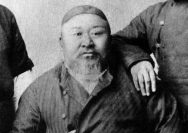The KGB (Komitet Gosudarstvennoy Bezopasnosti) was the main intelligence agency in the Soviet Union from 1954 until its dissolution in 1991. The actions of the KGB were highly controversial and widely criticized, as the agency was notorious for carrying out acts of espionage, assassination, and intimidation in order to maintain Soviet power.
One of the most significant actions of the KGB was its role in the suppression of dissidents and political opponents. Under Soviet law, dissidents were considered to be a threat to national security and were often subjected to surveillance, harassment, and imprisonment. The KGB played a key role in identifying and targeting dissident groups, and its agents were tasked with infiltrating these groups in order to gather information and disrupt their activities.
In addition to suppressing dissidents, the KGB also carried out a wide range of espionage activities, both domestically and internationally. The agency was responsible for intercepting foreign communications, stealing military and industrial secrets, and recruiting sources within the Soviet government and military. The KGB’s espionage activities were highly effective, and the agency was widely feared by Western intelligence services during the Cold War.
Another key action of the KGB was its involvement in assassination plots against political opponents and defectors. The agency was responsible for a number of high-profile assassinations, including the killing of Bulgarian dissident Georgi Markov in 1978 and the poisoning of former KGB officer Alexander Litvinenko in 2006. While the KGB officially denied involvement in such actions, there is strong evidence linking the agency to a number of such killings.
Lastly, the KGB is also infamous for its use of intimidation and psychological warfare to maintain Soviet power. The agency often used blackmail, threats, and other forms of coercion to ensure the loyalty of its agents and informants, and it was known for employing a wide range of psychological tactics to disorient and manipulate its targets.
Overall, the actions of the KGB were highly controversial and widely criticized, both domestically and internationally. While the agency was effective in pursuing Soviet interests, its methods were often ruthless and morally dubious, and its legacy continues to be debated to this day. Despite its dissolution in 1991, the KGB’s impact on Russian intelligence and politics remains significant, and its actions continue to influence the country’s path forward. ***




